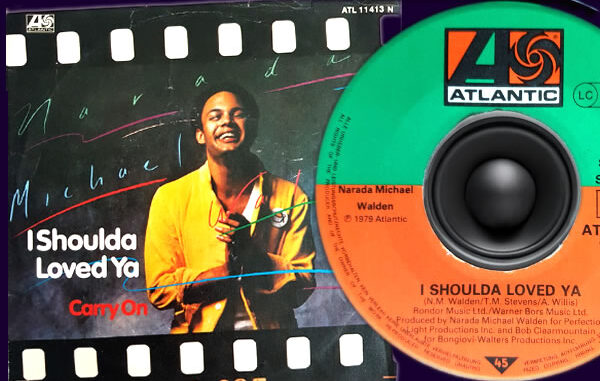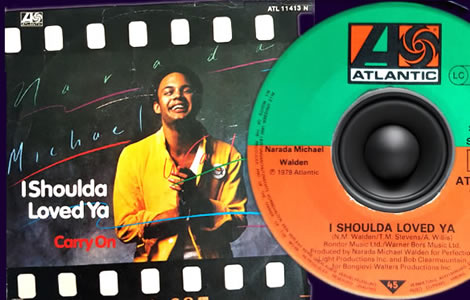
In 1979, Narada Michael Walden released the hit song “I Shoulda Loved Ya,” which became a significant success in both the United States and the United Kingdom.

The song was part of his second album, “The Dance of Life,” which showcased his versatility as a musician, producer, and songwriter.
“I Shoulda Loved Ya” stood out with its infectious groove, catchy chorus, and danceable rhythm, encapsulating the vibrant energy of the late 1970s music scene.
Success in the United States
In the United States, “I Shoulda Loved Ya” quickly gained popularity, climbing the charts and receiving substantial airplay on both radio stations and in nightclubs.
The song’s blend of funk, disco, and soul resonated with a wide audience, making it a favorite among DJs and music enthusiasts.
The track peaked at number 66 on the Billboard Hot 100, a notable achievement considering the competitive nature of the music industry at the time.
Moreover, it reached the top ten on the Billboard Hot Dance Club Play chart, cementing its status as a dancefloor anthem.
Success in the United Kingdom
Across the Atlantic, “I Shoulda Loved Ya” also found success in the United Kingdom. The British audience embraced the song’s funky beats and Walden’s dynamic performance. It charted well, reaching number 10 on the UK Singles Chart, which was a testament to its broad appeal.
The UK’s vibrant club scene played a crucial role in the song’s success, as it became a staple in discos and dance halls across the country.
The track’s popularity in the UK was further bolstered by Walden’s reputation as a talented musician and his work with other notable artists.
Narada Michael Walden’s Musical Impact
Narada Michael Walden’s influence on the music industry extended beyond his solo work. He was known for his collaborations with legendary artists such as Aretha Franklin, Whitney Houston, and Mariah Carey.
His ability to blend different genres and create hit records made him a sought-after producer and songwriter.
“I Shoulda Loved Ya” exemplified his knack for crafting memorable melodies and infectious rhythms, contributing to his legacy as a versatile and influential figure in music.
The Music Scene of 1979
The late 1970s was a dynamic period for music, marked by the continued popularity of disco, the emergence of punk rock, and the rise of new wave.
Disco was still dominant, with artists like Donna Summer, Chic, and the Bee Gees ruling the charts. Songs like Chic’s “Good Times” and Donna Summer’s “Bad Girls” were emblematic of the era’s dance-oriented sound.
At the same time, punk rock was making waves with its raw energy and rebellious spirit. Bands like The Clash, The Ramones, and The Sex Pistols were at the forefront of this movement, challenging the norms of mainstream music and influencing a generation of musicians.
New wave, which combined elements of punk with pop sensibilities, was also gaining traction, with bands like Blondie and Talking Heads releasing innovative and genre-defying music.
Great Films of 1979
1979 was also a remarkable year for cinema, with several iconic films that have left a lasting impact on popular culture.
Movies like “Apocalypse Now,” directed by Francis Ford Coppola, captured the harrowing experiences of the Vietnam War and showcased the director’s visionary storytelling. The film’s intense and surreal portrayal of war earned it critical acclaim and several awards.
Another standout film was “Alien,” directed by Ridley Scott. This science fiction horror film introduced audiences to the terrifying xenomorph and established Sigourney Weaver as a formidable lead actress.
“Alien” combined elements of suspense, horror, and sci-fi, setting a new standard for the genre and spawning a successful franchise.
Additionally, “Kramer vs. Kramer,” a poignant drama about a custody battle, resonated with audiences and critics alike.
Starring Dustin Hoffman and Meryl Streep, the film explored themes of family, divorce, and personal growth. It received multiple Academy Awards, including Best Picture, Best Actor, and Best Supporting Actress.
The Broader Cultural Landscape
The cultural landscape of 1979 was a reflection of a world undergoing significant changes. Politically, it was a tumultuous time, with events like the Iranian Revolution and the Soviet invasion of Afghanistan dominating headlines.
These global events had a profound impact on society and were often reflected in the music and films of the era.
In the United States, the energy crisis and economic challenges were pressing issues. The disco craze, which had provided an escape for many, was beginning to wane as new musical movements emerged.
Punk rock and new wave offered a raw and edgy alternative to the polished sound of disco, resonating with younger audiences seeking something different.
Capitol.fm plays the Bangkok Hitz like ‘I Shoulda Loved ya’
“I Shoulda Loved Ya” by Narada Michael Walden remains a memorable hit from 1979, a year that was rich with musical diversity and cinematic brilliance.
The song’s success in the US and UK highlighted Walden’s talent and the broad appeal of his music.
As the music scene evolved and new genres emerged, tracks like “I Shoulda Loved Ya” captured the vibrant and dynamic spirit of the late 1970s, leaving an enduring legacy in the annals of music history.
